The Borderland community is reluctant to exclude alleged perpetrators of sexual harassment from participating in events despite repeated allegations from victims.
Angèle Duplouy, Heino Ollin, Sarah Buck, Suzanna de Vries, Zaid Hamam
The Borderland is an event held in Eksjö based on the same ten principles as Burning Man in the United States. The event is described as ”the liminal space between dreams and realities, its borders delimited only by your fancy and fantasies”. Whilst the event promises to be a safe space for its participants, several women have come forward with cases of sexual assault in recent years.
The Borderland and Burning Man emphasize the principles of radical inclusion and radical self-expression. ”But there is a flip side to radical inclusion”, says Anna*, a former participant who claims to be a victim of assault at The Borderland. ”The flip side is that you can’t get anybody out.”
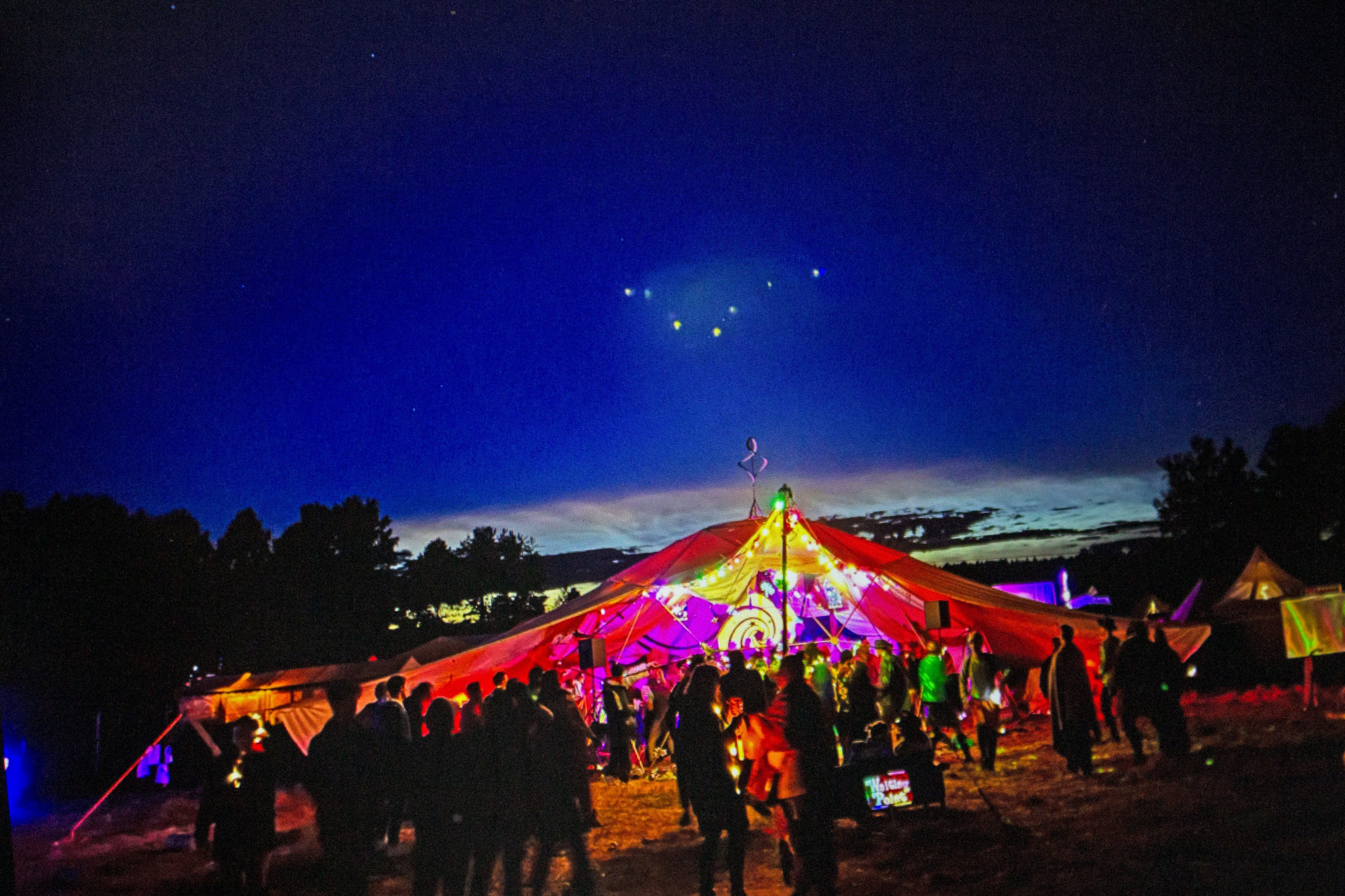
The Borderland organization believes in a restorative justice approach to handling cases of sexual assault. The idea is to organize a meeting between the victim and the alleged perpetrator. ”The model that we have says that the perpetrator is not intrinsically evil. Victims are encouraged to restore their relationship with the abuser using the restorative justice process. The perpetrator redeems themselves in the eyes of the community without a single meaningful consequence”, explains Anna.
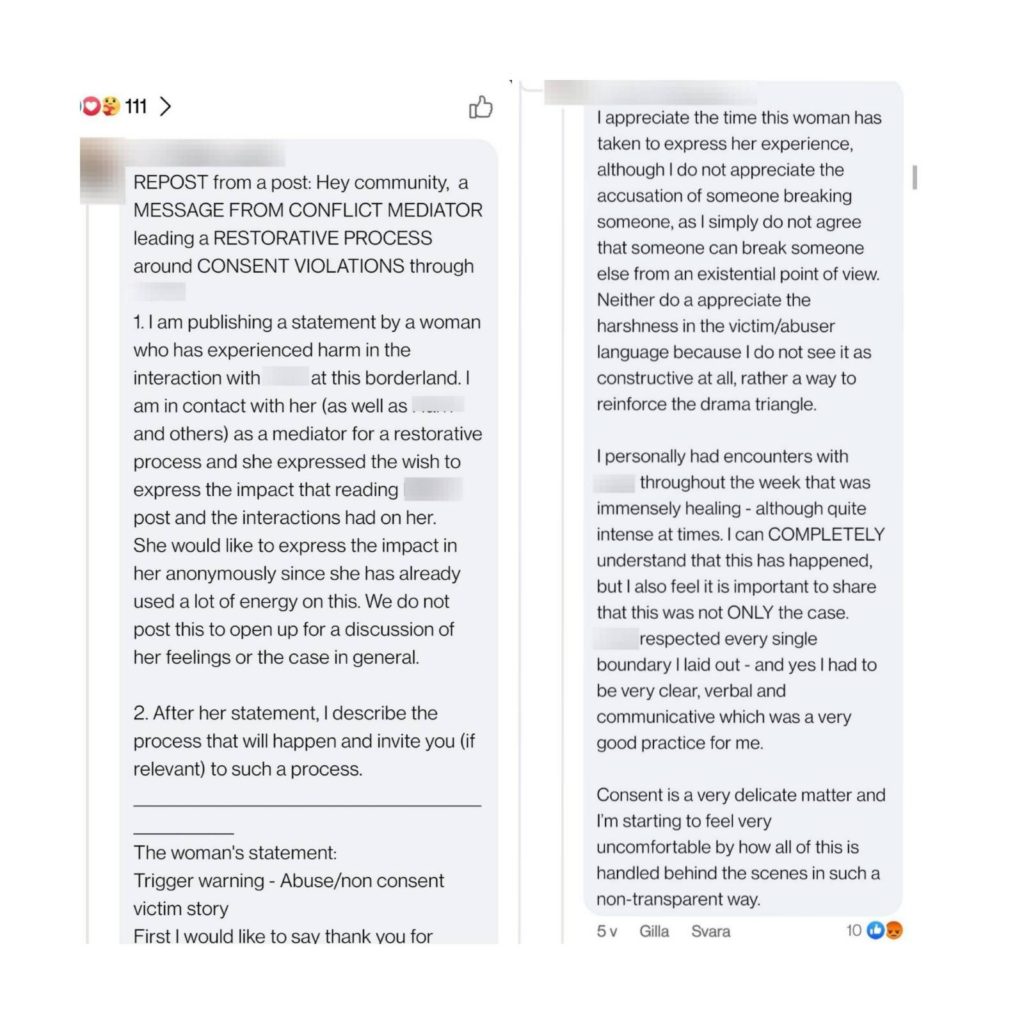
Facebook posts and forums expose the community to incidents where they can share their opinions. Dominique Lemainque, a clinical psychologist, explains the risks involved with current procedures at The Borderland. ”First of all, it is a misuse of restorative justice.” According to her, the restorative justice process is not intended to allow the aggressor to escape the law. Mediation can be offered as an additional tool. Dominique Lemainque points out that there are important limits to restorative justice. ”For victims of traumatic events, it is essential to avoid confronting the victim with anything that reminds them of the incident. If the victim confronts their perpetrator, this may reactivate the trauma.”
Conducting mediation on social media is even more shocking to Dominique Lemainque. ”Sexual assault cases are normally dealt with behind closed doors. This is an intimate matter. Moreover, restorative justice works on the assumption that the aggressor has empathy and understands their act. This is why there are [professional] psychological evaluations before going through such a procedure. It is usually very hard for perpetrators to acknowledge their actions and can end up presenting themselves as victims.”
Core members of The Borderland community refused to talk to us but have made documents available explaining their organizational structure. These documents state that the members in charge of security must call the police in case of aggression. However, no reports have been made to the police in Eksjö. According to Anna, issues are handled internally, and several victims have come forward to the community with allegations.
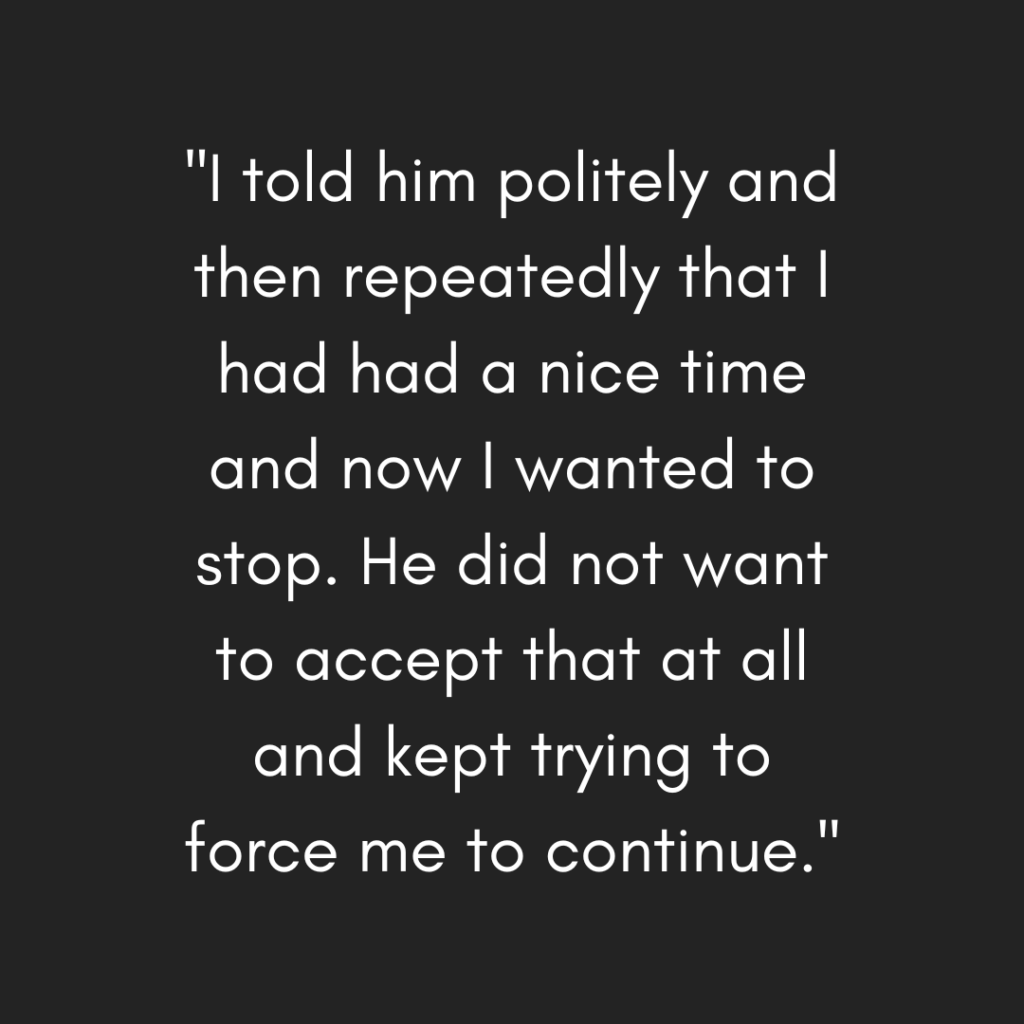
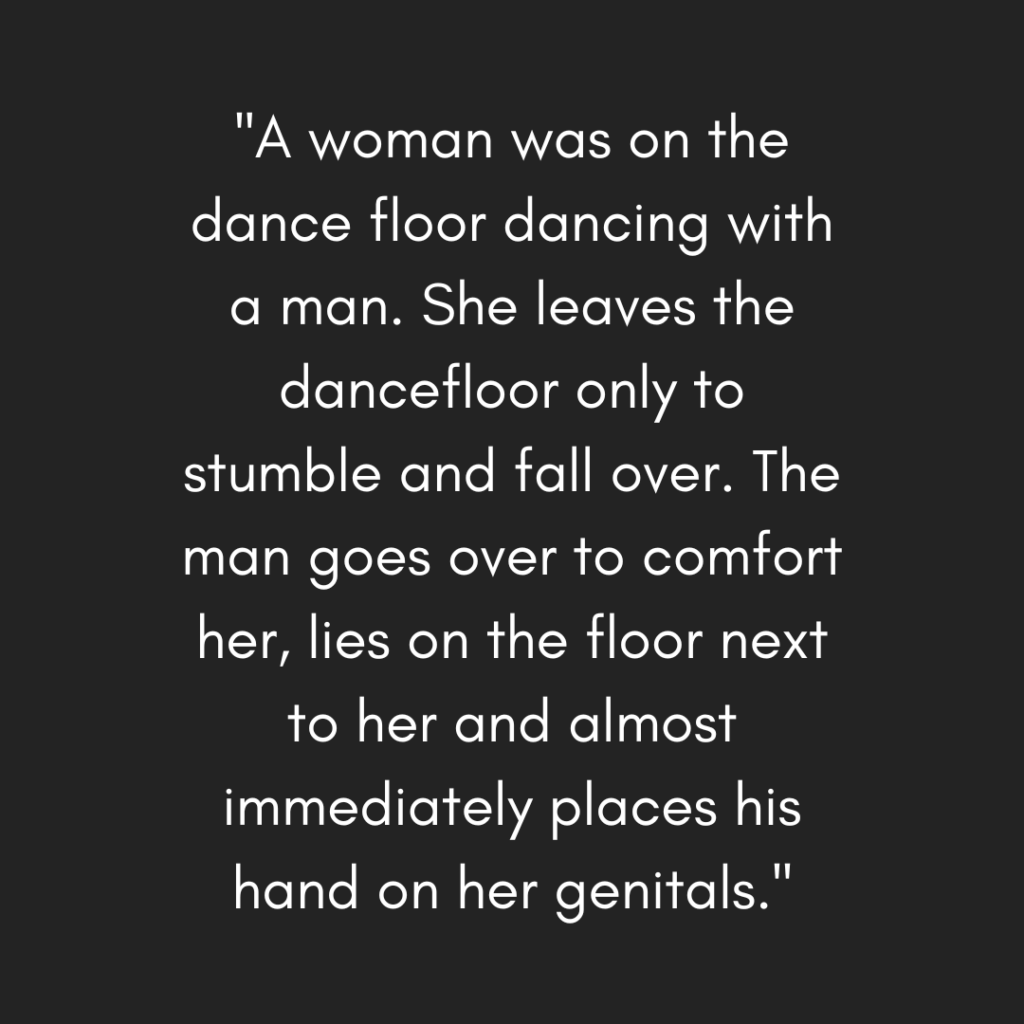
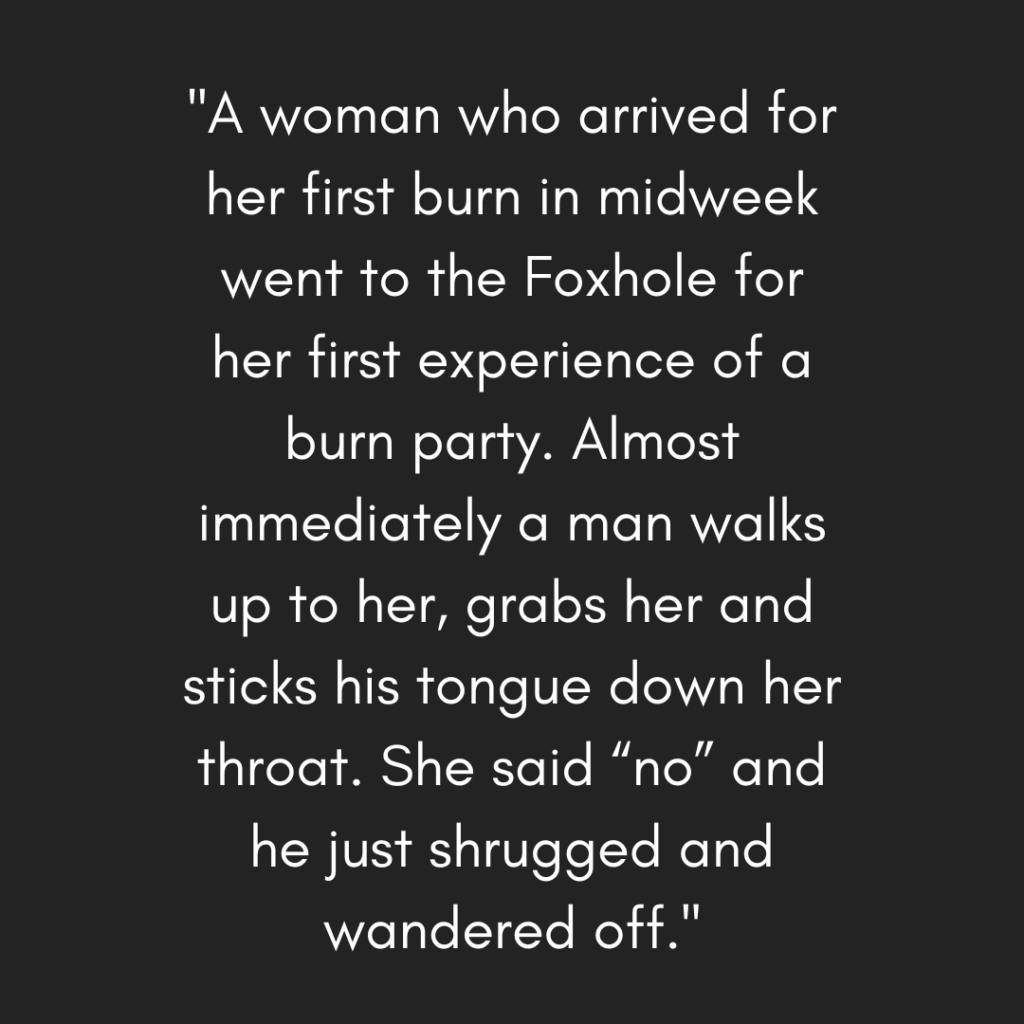
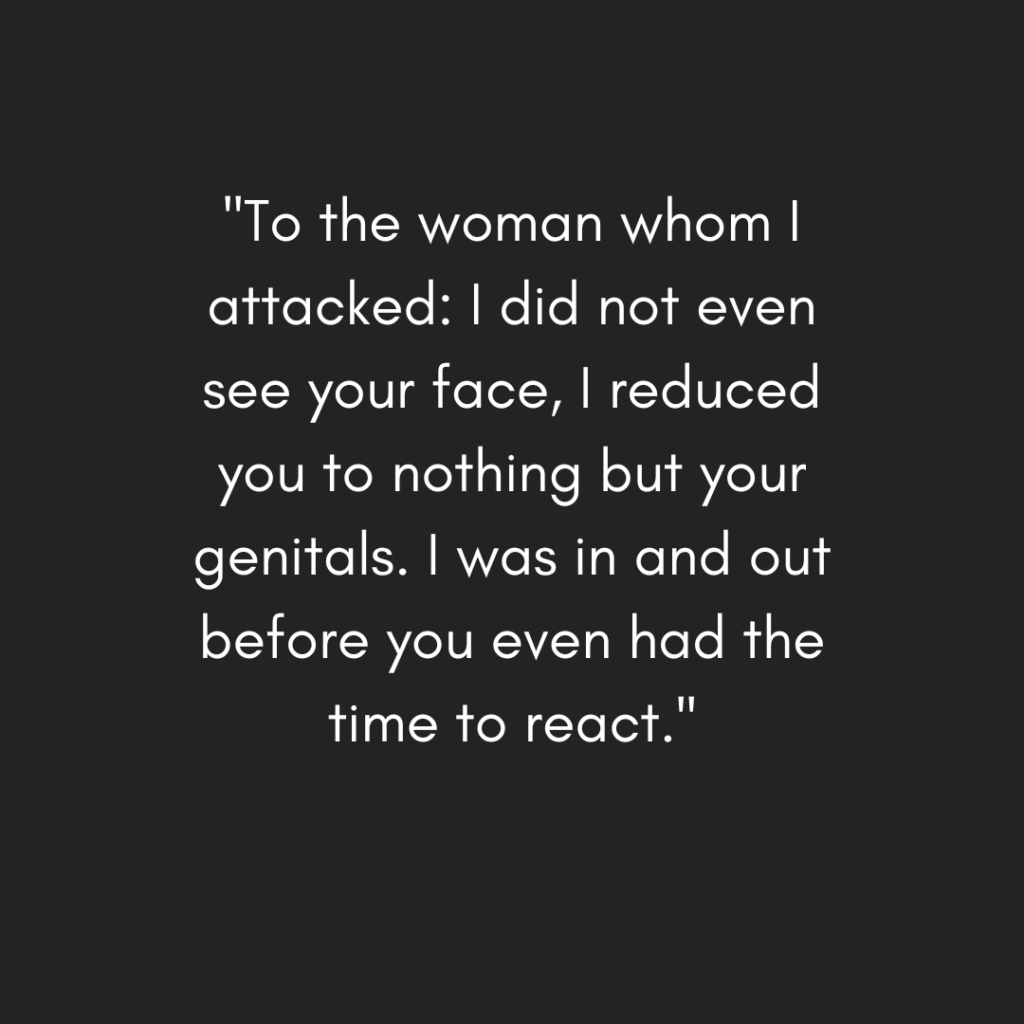
”The other women and I at The Borderland do not want a restorative justice process. We want these men banned so that they don’t harm any more women”, says Anna. According to Anna, there is a need for work around consent, security, and safety. ”One of the roles that I continually see not being fulfilled is the consent policy. It is a recipe for consent disaster each year because there is no ongoing consent team and in fact, they are just a bunch of volunteers”, says Anna. ”The event is growing, and each year there are a different set of people who get tickets. There is no continuity.”
A YouGov survey from 2018 showed that 43% of women in the UK under 40 have experienced sexual assault at a festival. According to a Swedish Crime Prevention Council (BRÅ) report from 2019, there was a significant increase in reports of sexual harassment at festivals between 2011 to 2017. To combat this, in 2016 a police campaign was launched to encourage festivalgoers to report incidents of sexual harassment and assault.
Most major festivals in Sweden, including Lollapalooza and Way out West, have fully trained RSFU representatives present to offer support to victims of sexual crimes. In contrast, at The Borderland a consent team operates with volunteers without formal qualifications.
It is not only the victims who are made aware of these issues within the community. Daniel*, a former community member who witnessed a recent restorative justice mediation case, is critical of the process. ”I thought it was biased from the start. It really seemed like it wasn’t about victims or doing what’s right. It was more about finding a way to get perpetrators back in.” Daniel thinks that severe cases should be handled by authorities and not by the community. In Sweden individuals convicted of sexual crimes face up to 10 years in prison. Mediation can be suggested as part of the rehabilitation of Swedish convicts, but it is not always recommended.
”I’m a hundred percent sure this case should go to court”, says Daniel. ”I asked several times if there was any support for the victims to file this, but that was never answered. They kind of dodged that.” For Daniel, The Borderland is not approaching these incidents appropriately when compared to other burner communities across Europe. He feels that more must be done to safeguard the participants of future events. Daniel states that ”I really believe in the principles, but they have limits.”
If you or someone you know has been affected by these issues, please contact: https://www.brottsoffermyndigheten.se/
*Names have been changed
